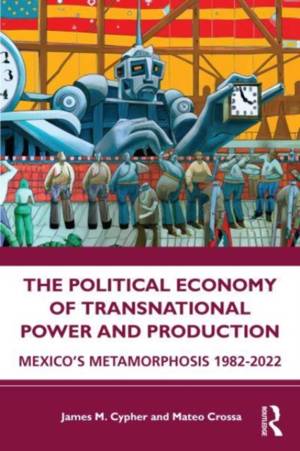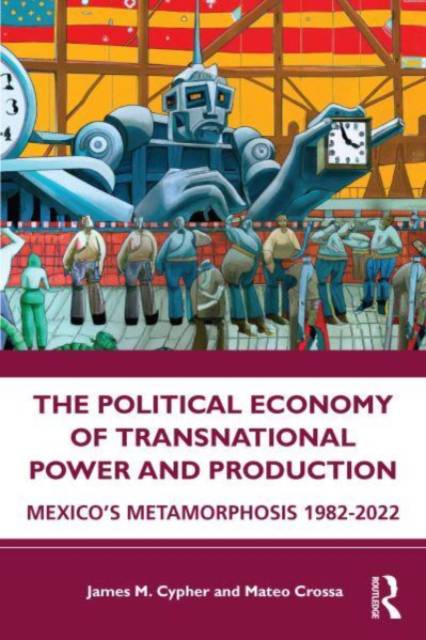
- Retrait gratuit dans votre magasin Club
- 7.000.000 titres dans notre catalogue
- Payer en toute sécurité
- Toujours un magasin près de chez vous
- Retrait gratuit dans votre magasin Club
- 7.000.000 titres dans notre catalogue
- Payer en toute sécurité
- Toujours un magasin près de chez vous
The Political Economy of Transnational Power and Production
Mexico's Metamorphosis 1982-2022
James M Cypher, Mateo CrossaDescription
The Political Economy of Transnational Power and Production: Mexico's Metamorphosis 1982-2022
How and why Mexico's socioeconomic structure was transformed through plutocratic preferences, US corporate strategies, and ideology--all powering transnational processes of neoliberalization--are issues examined in this comprehensive, carefully documented publication covering four crucial decades of metamorphosis. The causes and consequences of the creation of a new, regional power bloc--the North American Free Trade Agreement (NAFTA)--are extensively examined.
Readers will benefit from the many important demystifications presented here, chronicling the asymmetric Mexico-US production system. The impacts of the new transnational structure for labor on both sides of the border are matters of centrality. Specialists and general readers alike will find an explicit and accessible account of the powerful forces opening access to and profiting from millions of low-wage workers enabling Mexico to become a strategic source of US imports. Portrayed by mainstream economists and major policy makers as a "win-win" triumph of "free trade" theory, this book documents the opposing reality imposed by NAFTA and the US-Mexico-Canada Free Trade Agreement on both the US and Mexican working classes. US economists foretold a dramatic narrowing of the income gap--the US would benefit; Mexico would benefit even more. But instead, the yawning gap increased for three decades, bringing devastation for workers while debilitating Mexico's national industrial base.
Spécifications
Parties prenantes
- Auteur(s) :
- Editeur:
Contenu
- Nombre de pages :
- 264
- Langue:
- Anglais
Caractéristiques
- EAN:
- 9781032309187
- Date de parution :
- 01-08-23
- Format:
- Livre broché
- Format numérique:
- Trade paperback (VS)
- Dimensions :
- 156 mm x 234 mm
- Poids :
- 399 g







